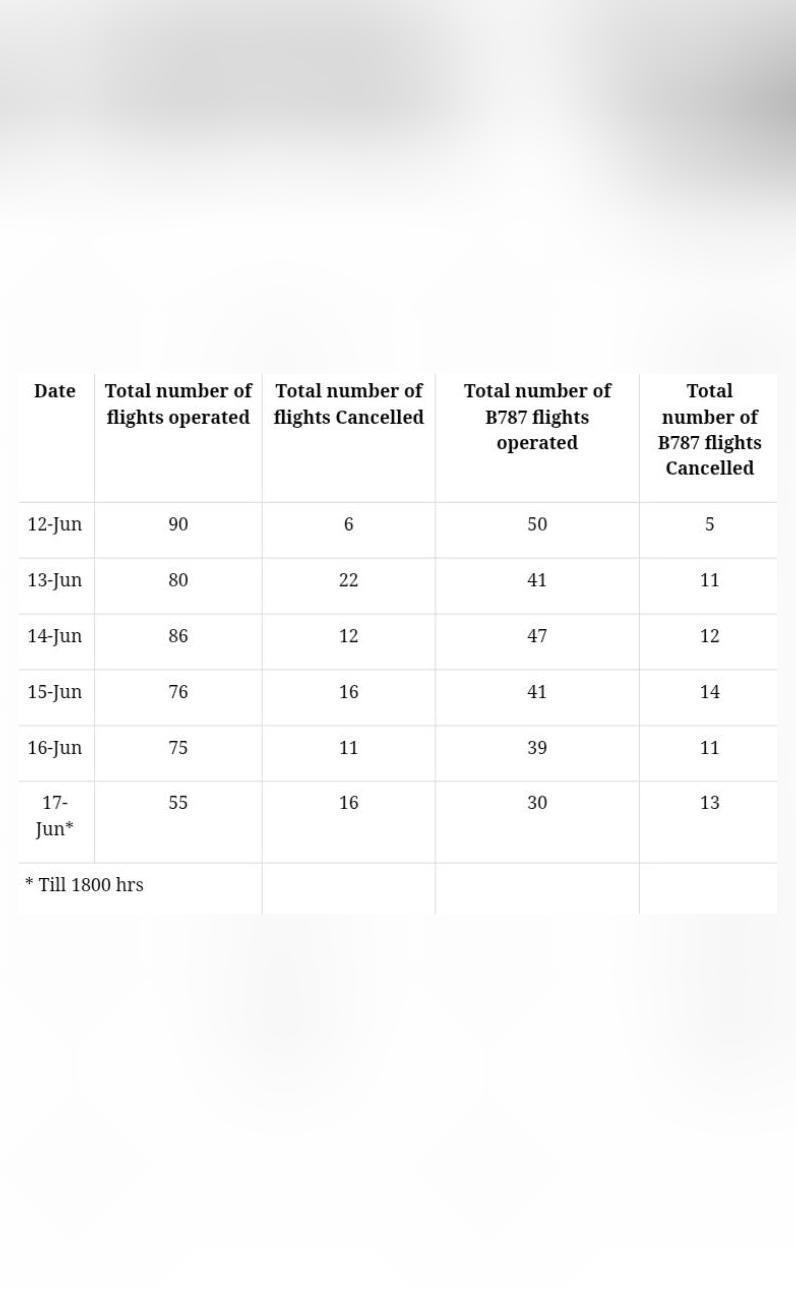
Title: 66 Air India flights cancelled between June 12 & 17 were Boeing 787 planes: DGCA
The Directorate General of Civil Aviation (DGCA) has released a report detailing the operations of Air India and Air India Express after a Boeing 787-8 Dreamliner crashed in Ahmedabad. The report has shed light on the cancellations of flights operated by Air India’s wide-body fleet during the period between June 12 and 17 (till 6 pm). According to the report, a total of 83 flights were cancelled, with a staggering 66 of these being Boeing 787 flights.
The report suggests that Air India’s Boeing 787-8 Dreamliner fleet was severely affected by the cancellations, with the majority of the flights being grounded. This is a significant development, especially considering the Dreamliner is a state-of-the-art aircraft known for its efficiency and reliability. The cancellations have raised concerns about the safety and maintenance of the aircraft, as well as the impact on passengers and the airline’s operations.
The cancellations were reportedly due to a combination of factors, including technical issues, weather conditions, and crew availability. However, the exact reasons for the cancellations are not specified in the report. The DGCA has not provided any further information on the matter, and it is unclear what steps the airline is taking to address the issue.
Air India’s Boeing 787-8 Dreamliner is a relatively new addition to their fleet, with the first aircraft being delivered in 2012. The airline had initially planned to operate the Dreamliner on long-haul flights, but the cancellations have forced them to reassess their plans. The airline has been facing significant challenges in recent years, including financial struggles and operational issues, and the cancellations are likely to exacerbate these problems.
The cancellations have also raised concerns about the impact on passengers. Those who had booked flights on the cancelled routes were left stranded, with no clear information on when they would be able to travel. The airline has been criticized for its handling of the situation, with many passengers taking to social media to express their frustration and disappointment.
In response to the cancellations, Air India has issued a statement apologizing for the inconvenience caused to passengers. The airline has promised to re-accommodate passengers on alternative flights and has been working to minimize the disruption to their operations. However, the cancellations have highlighted the need for improved communication and contingency planning, as well as a more robust approach to managing technical issues and weather-related disruptions.
The DGCA’s report has sparked renewed concerns about the safety and maintenance of Air India’s fleet. The cancellations have raised questions about the airline’s ability to operate its aircraft safely and efficiently, as well as its commitment to providing reliable services to passengers. The report has also highlighted the need for the airline to improve its communication and customer service, as well as its ability to handle unexpected disruptions.
In conclusion, the DGCA’s report has shed light on the cancellations of Air India’s Boeing 787 flights between June 12 and 17. The report has highlighted the severity of the cancellations, with 66 flights being grounded during the period. The cancellations have raised concerns about the safety and maintenance of the aircraft, as well as the impact on passengers and the airline’s operations. It is essential for Air India to take immediate action to address the issue, including improving communication, contingency planning, and technical maintenance.






